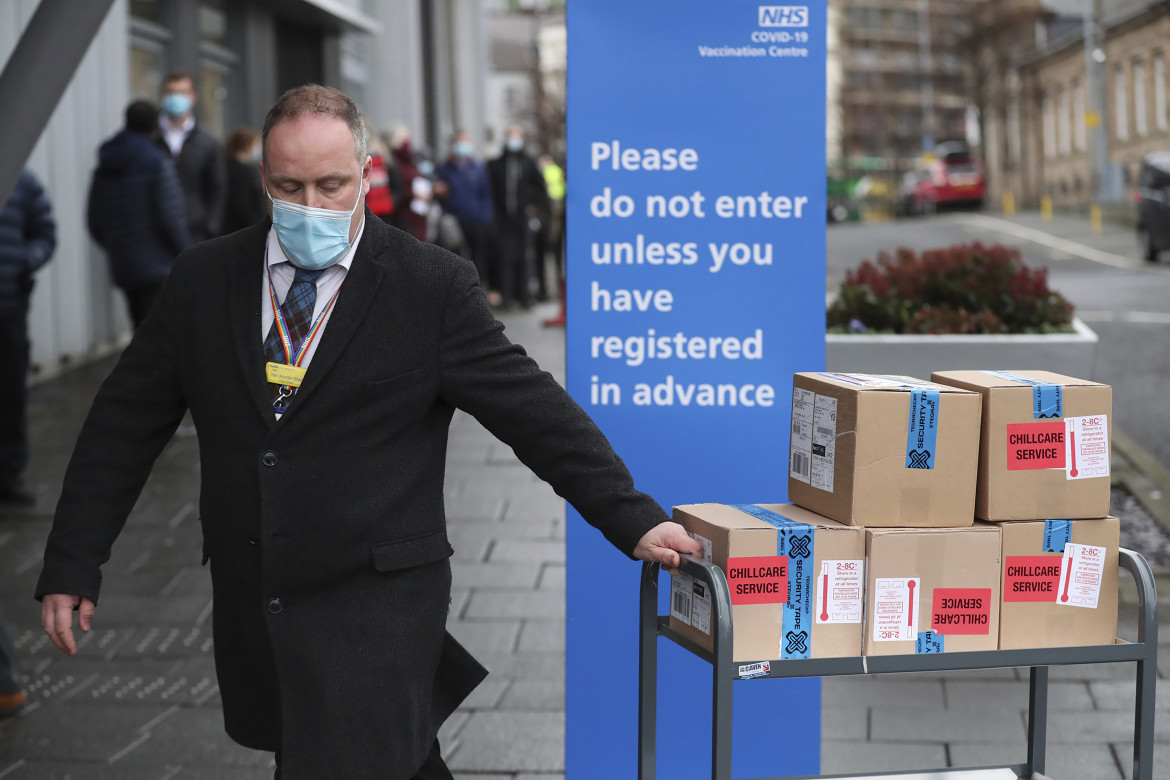Analysis
Doubts over AstraZeneca grow as Europe regrets bet on British vaccine
Studies on the AstraZeneca vaccine, riddled with errors and delays, seem to have shown a significantly lower effectiveness than Pfizer/BioNTech and Moderna.

Experts from the European Medicines Agency (EMA) will meet on January 29 to decide whether to authorize a third vaccine in the European Union, the one developed by Oxford University and produced by AstraZeneca. It is the vaccine from which the Union has reserved the most doses (400 million), but also the cheapest.
According to a tweet that the Belgian undersecretary for the budget, Eva De Bleeker, “accidentally” let out, a dose would cost 1.78 euros, ten times less than the most expensive vaccine, the one produced by Moderna. However, everyone now seems to regret having bet heavily on the British vaccine, first of all the Germans.
Studies on the AstraZeneca vaccine, riddled with errors and delays, seem to have shown a significantly lower effectiveness than Pfizer/BioNTech and Moderna: 62% compared to 95%. Moreover, both the Pfizer/BioNTech vaccine and the CureVac vaccine (still in trials) have strong industrial roots in Germany, and the government could have grabbed larger stocks had it not relied on European negotiations.
Thus, the attacks on the Commission began, especially after an investigation by the weekly Der Spiegel that accused Brussels negotiators of rejecting an offer of 200 million doses of the Pfizer/BioNTech vaccine when doses were still available. In recent days, the European head of vaccine procurement, Sandra Gallina, dismissed the allegations during a hearing at the European Parliament: “We bought as much as was offered.” Gallina denied that other countries had conducted independent negotiations, in part because there are no more vaccines available on the market. Until yesterday, however, Germany had optioned 30 million doses of the Pfizer/BioNTech vaccine and 20 million doses of CureVac, according to the German health ministry’s website.
An AstraZeneca-centered vaccine strategy is also being challenged in Australia. The Australian government bought 54 million doses of the vaccine, compared with only 10 million doses of the Pfizer one. And now, scientists are protesting, even to the point of calling for the cancellation of the vaccine plan, which involves mass administration of the British vaccine.
The president of the Australian and New Zealand Society of Immunology, Stephen Turner, said that the AstraZeneca vaccine is not one “I would be deploying widely because of that lower efficacy,” doubting whether it would be possible to use it to achieve herd immunity. “If [the efficacy of the AstraZeneca vaccine] is 62% [and] it’s revealed in their further trials, it’s arguing that the federal government will invest in Pfizer and Moderna vaccines and use them in the wider community,” said Heidi Drummer, vice president of the Australasian Society of Virology, echoing Turner. And now everyone is waiting for the new data promised by the company to the European Medicines Agency for authorization and not yet published.
The possibility of controlling the virus through vaccinations will depend not only on their effectiveness, but also on their effect on further infection. Vaccine trials to date have measured the likelihood of developing COVID-19 symptoms, but there is very little data on so-called “sterilizing immunity,” i.e., prevention against asymptomatic infections and virus transmission. The vaccines stimulate the production of IgG and IgM antibodies, while the viral infection is also fought by IgA antibodies, typical for the mucous membranes of the upper respiratory tract. Without that protection, which patients naturally acquire after healing from the virus, it could still infect the body asymptomatically and continue to circulate.
From the studies conducted so far, the Moderna vaccine already showed partial protection against asymptomatic infections after the first dose, while AstraZeneca’s vaccine had no preventive effect. Nothing is known about the Pfizer/BioNTech vaccine, but scientists are optimistic: Matthew Woodruff, an immunologist at Emory University, told the online journal Quartz that he couldn’t imagine “a vaccine that prevents symptomatic infections with the effectiveness reported by pharmaceutical companies but doesn’t have an impact on virus circulation.” Almost identical was the opinion of the immunologist Roberto Burioni on Twitter: “There is no antiviral vaccine on earth that, with 95% protection, does not have a profound impact on transmission.”
Data on contagiousness is also needed in order to choose the population groups with which to start so that vaccination campaigns would have maximum effect. A study by the European Center for Disease Control (ECDC) shows that if the vaccine does not prevent contagion, starting vaccinations with health care workers, as Italy did, might have been a mistake: vaccinating all doctors and nurses will reduce the number of victims by less than 5%.
Without sterilizing immunity, it would be better to start with the over-80s: vaccinating them would decrease the number of victims by about 40%. If we include people with other diseases which put them at risk, independent of age, deaths would drop by almost 90%. Vaccinating health workers would have a similarly strong effect (-40% of deaths) only if the virus prevented 50% of new infections. Doctors and nurses can more easily become “super spreaders,” generating outbreaks among their patients. But the effect of the vaccine on contagion remains unknown.
Originally published at https://ilmanifesto.it/aspettando-astrazeneca-crescono-i-dubbi/ on 2021-01-15
